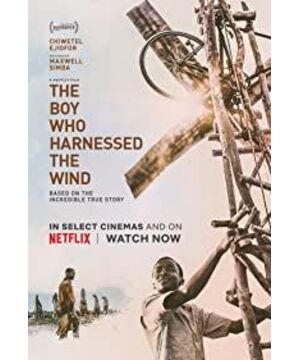People compete for despair because there is no food, and they see hope because of the male protagonist's knowledge; because of the ignorant rejection of the male protagonist's father and despair again, it is not until the moment when they finally see the flow of water that people really see hope.
It is worth mentioning that the male protagonist's desire for knowledge and desire to change the status quo is worth learning. How important is knowledge in this film, because it is based on real events, it makes the audience feel that the performance is more real and profound.
Now think about the reality, the children of poor families have long been in charge of the family, and the poor family has a noble child, which is already a matter of the previous era. The current comfortable but not favorable environment is like boiling a frog in warm water, making the next generation become arrogant and lustful without knowing it.
Finally, Xiaokan summarizes: technology changes life.
Extra article: When I was a child, I heard my elders talk about China in the 1960s and 1970s. Industry was underdeveloped and agriculture was the primary industry. Relying on the sky to eat, if there is no food, you can only eat the bark and Guanyin soil on an empty stomach. Poverty and backwardness were synonymous with China at that time. After watching the surrounding environment in this movie, I can truly think of how hard the elders said at that time. Hurry up and eat the remaining grain of rice in the bowl, and don't dare to waste food in the future. Attached is the address of the three-year famine at the time: https://zh.wikipedia.org/wiki/%E4%B8%89%E5%B9%B4%E5%9B%B0%E9%9A%BE%E6%97% B6%E6%9C%9F
View more about The Boy Who Harnessed the Wind reviews











